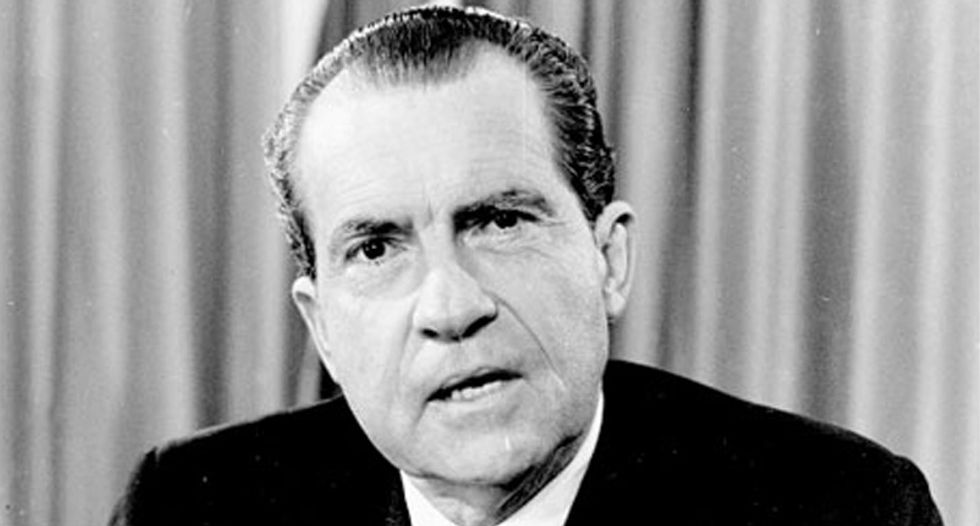
President Donald Trump will go down in history for, among many other things, being the U.S. president with the greatest number of associates who have faced criminal charges since President Richard Nixon: Michael Cohen (Trump’s former personal attorney) and Paul Manafort (his 2016 campaign manager) are both serving time in federal prison, while GOP activist Roger Stone was recently convicted of seven criminal counts and Trump’s former national security adviser, Michael Flynn, awaits sentencing for lying to the FBI. All of those Trump associates ran into legal problems before the Ukraine scandal, which is only adding to Trump’s reputation for corruption — and Vanity Fair journalist Kevin M. Kruse, making a Watergate/Trump comparison, asserts that Watergate offers some history lessons for Trump loyalists.
Kruse, in a Vanity Fair article published on November 27, writes that during the impeachment inquiry presently taking place in the U.S. House of Representatives, “Trump loyalists” have “lashed themselves to the presidential mast” — and Kruse stresses that “if Watergate is an American parable, most of them will go down too.”
“All the President’s Men” is the title of a 1974 book that Washington Post reporters Bob Woodward and Carl Bernstein wrote about Watergate. In 1976, a film adaptation of their book was released: Robert Redford played Woodward, while Dustin Hoffman played Bernstein. And in 2018 and 2019, Woodward and Bernstein have had a lot to say about Trump’s many scandals during their cable news appearances.
In August 1974, Nixon resigned — and Vice President Gerald R. Ford was sworn in as president of the United States. The 1974 midterms, thanks to Watergate, were terrible for Republicans — some of whom prematurely wrote the GOP’s obituary. Kruse notes that the National Review’s William Rusher, for example, “wanted to scrap it all and start fresh with a Conservative Party, led by Ronald Reagan or George Wallace.” But Kruse also notes that Reagan’s landslide victory in 1980 showed that “reports of the Republicans’ demise were greatly exaggerated.”
Looking back on the events of 1974, Kruse recalls that Nixon had his share of loyalists who were with him until the bitter end — and they paid a price for it in the 1974 midterms. Trump loyalists, Kruse emphasizes, are foolish to overlook that history lesson.
“Republicans lost 48 seats in the House that fall, with many of the president’s most vocal defenders among them,” Kruse recalls. “Take Indiana Rep. Earl Landgrebe.”
Landgrebe, Kruse remembers, infamously declared his unwavering loyalty to Nixon in August 1974, asserting, “Don’t confuse me with the facts: I’ve got a closed mind. I’m going to stick with my president even if he and I have to be taken out of this building and shot.”
Kruse says of Landgrebe, “He wasn’t shot, but voters killed his political career with a humiliating loss that fall.”




